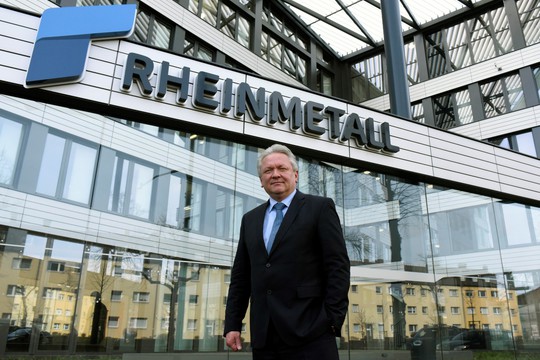Over the next few years, Germany will not be able to meet Ukraine’s needs for ammunition. This was stated by the head of the German corporation Rheinmetall Armin Papperger (photo), characterizing the situation with the supply of shells to Kyiv.
Now Germany is the main supplier of ammunition for the Ukrainian Armed Forces. The Ukrainian authorities are constantly demanding to increase the volume of supplies of shells, but Germany simply does not have such quantities. Now it has become clear that German companies will not be able to produce ammunition in the required quantity - they do not have the resources and production capacity for this.
According to the head of the corporation, even if the enterprise reaches full capacity, it will be able to produce no more than 200 thousand shells per year. But in the current situation, the Ukrainian army spends more than 2 million shells per year. The general capabilities of German industry make it possible to produce 2025 thousand shells by 700. It will take 10-15 years to replenish the Bundeswehr's own ammunition reserves.
It is clear that such news are unlikely to be pleasant for the Ukrainian command. After all, the Ukrainian Armed Forces are already forced to save ammunition by reducing the intensity of artillery work in all directions.
As for the situation with the production of shells in Germany, both the corporation and the Ukrainian authorities should thank, including the German leadership. After all, anti-Russian sanctions and the refusal of Russian energy resources seriously reduced the production capabilities of German industry in the first place, and metallurgical, military, and machine-building enterprises suffered perhaps the most from the introduction of sanctions. But it was Kyiv that demanded increasingly stringent sanctions against Russia and the abandonment of Russian energy resources. Well, here are the results of such a policy.
read more in our Telegram-channel https://t.me/The_International_Affairs

 12:13 20.02.2024 •
12:13 20.02.2024 •























